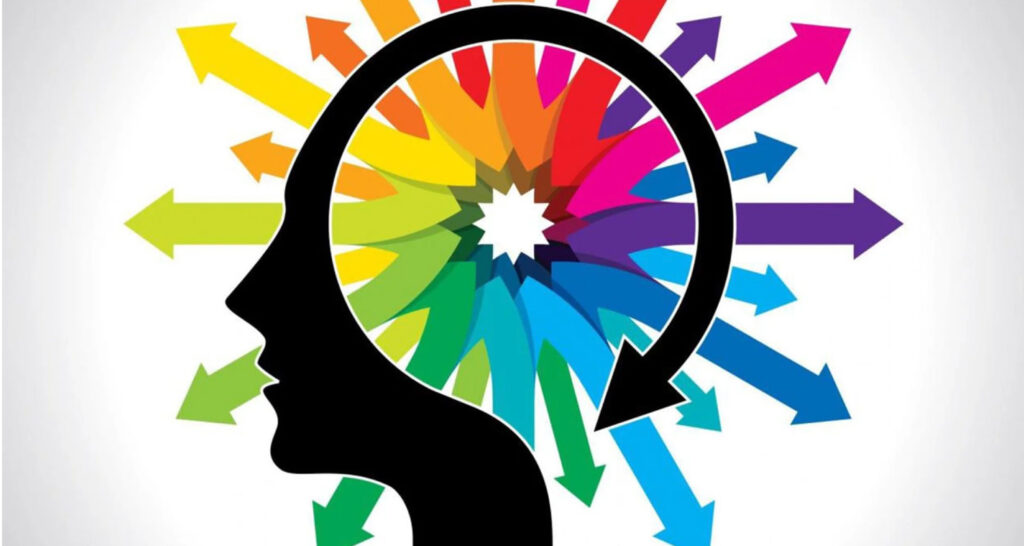Consumer psychology, the heartbeat of successful marketing strategies, delves into the intricate workings of the human mind, decoding the motivations, emotions, and decision-making processes that drive purchasing behavior. At its core, consumer psychology examines how individuals perceive, interpret, and respond to marketing stimuli, illuminating the path to more effective and resonant communication between businesses and their audiences.
In the realm of marketing, understanding consumer psychology is not a luxury but a strategic imperative. It serves as the compass guiding businesses through the dynamic landscape of consumer preferences, trends, and influences. By comprehending the psychological factors that shape purchasing decisions, businesses gain a nuanced perspective that transcends mere product features. This knowledge empowers marketers to craft messages, design experiences, and position products in ways that resonate deeply with their target audience.
The impact of understanding consumer behavior on business success is profound. It transforms marketing efforts from mere transactions to meaningful connections. By tailoring strategies based on consumer psychology, businesses foster brand loyalty, enhance customer satisfaction, and establish a competitive edge in the market. In essence, consumer psychology is the key that unlocks the doors to consumer engagement, brand affinity, and ultimately, sustained business success in the ever-evolving marketplace.
The Cognitive Tapestry of Consumer Behavior

Within the intricate realm of consumer behavior, cognitive processes weave the very fabric of decision-making. Exploring the cognitive factors that influence how consumers perceive and process information unveils the subtle intricacies shaping their choices. At the forefront of these processes lies attention—the gateway to consumer consciousness. Understanding how attention is captured and maintained is pivotal for marketers seeking to engage their audience effectively.
Perception, the lens through which individuals interpret stimuli, further dictates consumer responses. Marketers must navigate the landscape of sensory inputs, considering how colors, shapes, and messaging are perceived. Memory, the keeper of past experiences and associations, plays a fundamental role in shaping brand recall and preference. Building positive associations and leveraging memorable experiences become essential strategies in the cognitive journey of consumer decision-making.
Emotional Triggers in Consumer Choices

Consumer choices are often orchestrated by the silent maestro of emotions, shaping preferences and dictating purchasing decisions. Examining the emotional triggers that underpin these choices unveils the profound connection between human sentiment and consumer behavior. Emotions act as catalysts, influencing how individuals connect with products and brands on a visceral level.
The spectrum of emotions—joy, fear, nostalgia, and excitement—becomes a palette for marketers seeking to create resonant brand experiences. Brands that evoke positive emotions foster a sense of connection and loyalty. This emotional bond transcends transactional relationships, transforming customers into devoted brand advocates.
The link between emotions, brand loyalty, and purchasing decisions is a powerful nexus. Consumers driven by positive emotional associations with a brand are more likely to choose it over competitors. Effective storytelling, relatable messaging, and memorable experiences become strategic tools for fostering emotional connections. In the symphony of consumer behavior, emotions compose the melody that resonates long after the purchase—a melody that, when orchestrated harmoniously, leads to enduring brand loyalty and sustained business success.
The Social Tapestry of Consumer Behavior

Consumer behavior is intricately woven into the rich fabric of societal and cultural influences, where individual choices are shaped by collective norms, values, and trends. Analyzing how societal and cultural factors impact consumer behavior provides a profound understanding of the intricate dance between personal preferences and broader cultural contexts.
Social norms, the unwritten rules governing behavior within a society, act as guiding forces in consumer choices. They influence what is deemed acceptable or desirable, creating a framework that individuals unconsciously navigate. Values, deeply ingrained beliefs, further contribute to the shaping of preferences, influencing decisions based on ethical, moral, or cultural considerations.
Cultural trends, the dynamic expressions of a society’s collective identity, play a pivotal role in shaping consumer preferences. Marketers must be attuned to the ever-evolving cultural landscape, adapting strategies to align with emerging trends and resonate with diverse audiences.
The Motivations Driving Consumer Behavior

Consumer behavior, at its core, is propelled by a web of psychological motivations that dictate desires and fuel purchasing decisions. Exploring these motivations unveils the intricate dance between innate human needs and the marketplace. At the heart of this dynamic lies a spectrum of motivations—ranging from basic survival instincts to complex emotional desires.
Maslow’s Hierarchy of Needs provides a foundational framework, illustrating how fundamental needs like safety and sustenance lay the groundwork for more intricate desires such as belonging, esteem, and self-actualization. Businesses keen on understanding and influencing consumer behavior must navigate this hierarchy, tailoring offerings to address various layers of human motivation.
Aligning products and services with consumer needs and desires becomes a strategic imperative for businesses. By recognizing and fulfilling these motivations, brands not only satisfy immediate wants but also foster lasting connections. Effective marketing goes beyond highlighting features; it taps into the psyche of consumers, articulating how a product meets their needs, fulfills aspirations, or enhances their quality of life.
The Art and Science of Persuasion in Consumer Decisions

In the intricate dance of consumer decision-making, the power of persuasion emerges as a linchpin, shaping choices and steering preferences. Examining persuasion techniques unveils the delicate interplay of psychology and communication strategies that marketers employ to influence consumer behavior. At its essence, persuasion is an artful science, rooted in an understanding of cognitive biases, social dynamics, and the intricacies of human decision-making.
Effective persuasion leverages psychological triggers such as reciprocity, scarcity, and social proof. Businesses strategically employ these techniques to create a sense of urgency, tap into the desire for social validation, and foster a reciprocating relationship with consumers.
The psychology behind effective marketing messages and sales strategies lies in the ability to resonate with the target audience’s emotions and motivations. Storytelling, relatability, and a deep understanding of consumer needs are paramount. Messages that evoke positive emotions, address pain points, and offer clear solutions create a persuasive narrative that influences not just initial purchases but also brand loyalty.
The power of persuasion is a dynamic force that transforms marketing from a transactional exchange to a relational engagement. Marketers who grasp the intricacies of persuasion wield a formidable tool, crafting messages that not only captivate attention but also inspire action, ultimately leading to a landscape where consumer decisions are not just influenced but artfully guided by the strategic dance of persuasion.
The Strategic Art of Decision-Making Heuristics in Marketing

In the labyrinth of consumer decision-making, individuals often rely on cognitive shortcuts, or heuristics, to simplify the complexity of choices. Exploring these mental shortcuts unveils the psychological mechanisms at play, showcasing how consumers streamline decisions based on rules of thumb. Recognizing and understanding these heuristics becomes a crucial insight for businesses aiming to tailor effective marketing strategies.
Common heuristics include the availability heuristic, where individuals assess the likelihood of an event based on its immediate accessibility in memory, and the anchoring heuristic, wherein the first piece of information encountered influences subsequent judgments. By delving into these cognitive patterns, businesses can strategically position information, creating memorable and influential touchpoints in the consumer’s decision-making journey.
Leveraging decision-making heuristics in marketing involves aligning messaging and presentation with these mental shortcuts. Highlighting key information early, framing options strategically, and capitalizing on social influences are ways businesses can tap into these cognitive mechanisms. By incorporating heuristics into marketing strategies, businesses not only simplify decision-making for consumers but also influence perceptions and preferences, paving the way for more favorable outcomes in a crowded marketplace.
Ethical Considerations in Consumer Psychology and Marketing

As businesses delve into the intricate realm of consumer psychology, a critical juncture emerges where ethical considerations shape the boundaries of influence and persuasion. Exploring the ethical implications of using consumer psychology in marketing requires a profound examination of the responsibility brands bear in wielding the power to shape perceptions and decisions.
The ethical landscape involves a delicate balance between influencing consumer behavior positively and avoiding manipulative tactics. Marketers must navigate the fine line between understanding consumer psychology for strategic engagement and respecting individuals’ autonomy and well-being. Transparent communication, honesty, and respect for consumer autonomy become pillars of ethical marketing practices.
Responsible marketing transcends immediate gains, focusing on building trust and fostering long-term relationships. Disclosing information truthfully, avoiding deceptive practices, and respecting consumer privacy are integral components of ethical marketing. By aligning marketing strategies with ethical principles, businesses not only demonstrate corporate responsibility but also cultivate a positive brand image, establishing a foundation of trust with consumers. In essence, ethical considerations in marketing are not constraints but guideposts, illuminating a path where businesses can thrive while upholding the values of transparency, honesty, and consumer respect.
Conclusion
As we conclude this exploration into the intricate web of consumer psychology in marketing, let’s not just reflect on tactics and strategies but also on the profound impact they carry. The art of understanding and influencing consumer behavior is not just about driving transactions; it’s about building meaningful connections. In the evolving landscape of marketing, let ethics be our guiding star, transparency our language, and consumer well-being our priority. As businesses, we wield the power to shape perceptions and influence decisions—may we do so with the utmost responsibility and respect.
In the symphony of consumer interactions, let every note be harmonious, resonating with authenticity and value. Here’s to a future where businesses not only thrive in the market but also contribute positively to the lives of their consumers. As we navigate the dynamic currents of consumer psychology, let empathy, integrity, and a commitment to ethical practices be the wind in our sails, propelling us toward sustained success and lasting connections.
